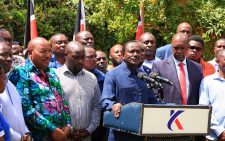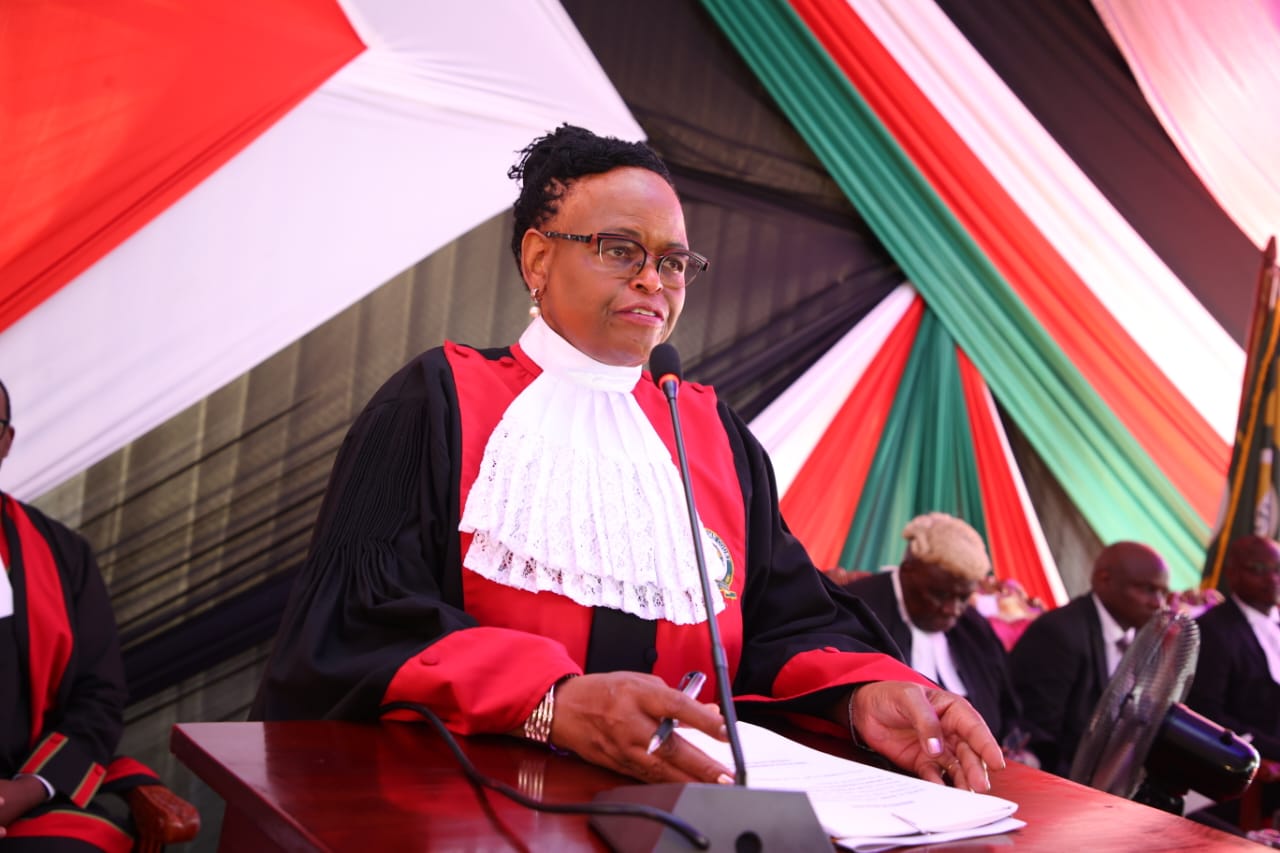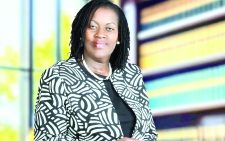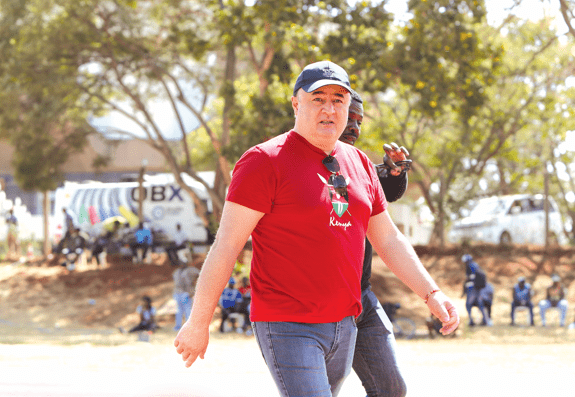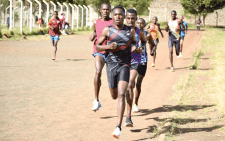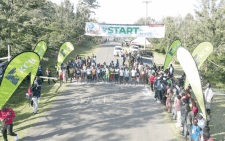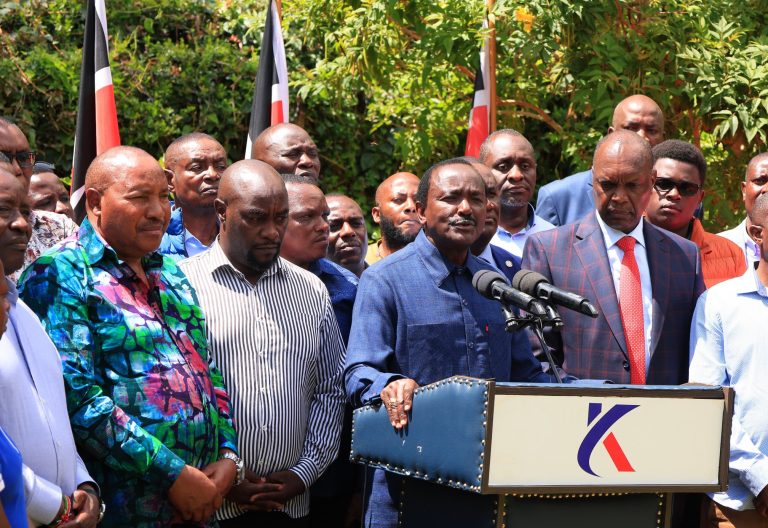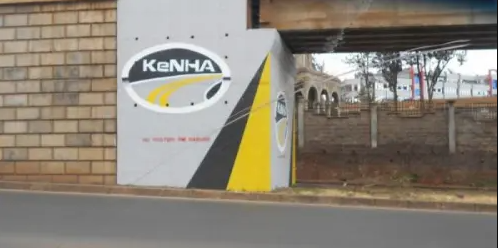Meet David Onkoba, a fashion designer with passion for the ‘Made In Kenya’
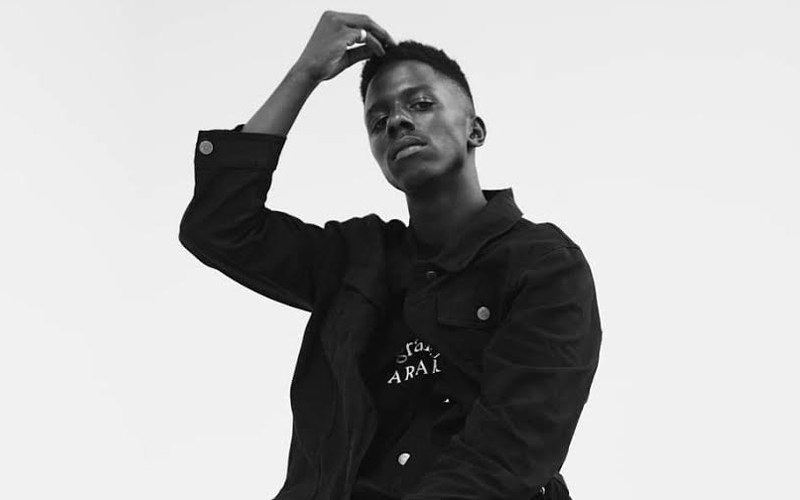
Metamorphosised By Daudi O is one of Kenya’s most avant-garde fashion houses. The couture line released their latest pre-2021 capsule. Its creative director David Onkoba talks with Jackson Onyango.
Talk about your latest collection and how it’s different from previous ones.
I recently rebranded my brand, which was originally known as Araknda, shifting to ready-to-wear clothing.
Previously, we focused on one-on-one pieces and custom pieces for artistes, but our market is expanding; that’s why we are shifting to this model.
It’s just a pre-collection because it’s a few sample pieces of pants, caps, T-shirts, hoodies, and shorts.
Do you sew the apparel yourself?
I haven’t studied fashion design; I’ve been doing it completely out of passion.
I always sketch out designs, use a personal mood-board, and make use of my personal tailor to help with the samples. Afterwards, we go to a factory that produces large scale.
So, I don’t stitch the clothing personally, but I am hands-on through the whole process.
As a designer, what are your thoughts on counterfeits and knock-offs?
I’ve always stood with the idea that I never appreciate people who wear counterfeit Supreme’s or knock-off Louis Vuitton’s, or where they buy the stuff because it’s totally fake and their quality is not guaranteed.
Usually, the prices are exorbitant, but they wear out quick. On the other hand we may price the same as the knock-offs, but ours is quality stuff. I feel that people value look over quality.
We actually rebranded to build our value to make people want to wear the brand.
Many Kenyan brands always suffer because most pieces and a lot of brands make good stuff, but people don’t buy them because they don’t value the brand’s name or logo.
I’d really love to be in a position where people appreciate us. Not just supporting the local brand, but buying it.
How then do you market your brand?
I’ll be the first to admit that I haven’t been the best at this so far. A lot of social media ads and word of mouth, but we have been working on building our social media marketing.
We will be sending out a couple of pieces to influencers we feel represent our target market, then we can see from there.
Who are some of your design muses?
Obviously Virgil Abloh of Louis Vuitton and Off-White, Samuel Ross of A Cold Wall, Matthew Williams of Alyx, Jerry Lorenzo of Fear of God, Wills London (South Africa) and a couple of Nigerian brands that are just starting off but doing great.
Do you have a personal style?
I wouldn’t say I have one. I go with my instincts, and I find myself standing out with my choices.
I don’t think there’s a definition for it, but I used to wear vintage, mixing it in a modern way. I thrift a lot and try mix what I have with what’s trendy.
What are your thoughts on Kenya’s fashion industry?
Kenyan street wear is pretty much the biggest scene if we are talking fashion.
But if you look at it keenly, a lot of people thrift, or wear counterfeit. And if they’re wearing Kenyan brands, it’s hardly street wear.
We realised with the Kenyan fashion scene that the market always wants to import our exports.
What I mean is, people wait for something to be big outside before they appreciate or notice them.
The industry is growing though, and a lot of futuristic brands are coming up.
We’ve been trying to work together through our pop-ups, but Covid-19 destroyed a lot of our plans.
The pandemic forced us to change our strategies. We are now setting up an online platform to sell our stuff, but we are still working through it.
Can we evolve past mitumba?
I don’t think so. It’s really deep in our culture. The cost is favourable, and economical as well.
How our fashion industry is set up is really hard to work around prices of mitumba.
What we can do is create a more sustainable scene by using mitumba creatively such as Nairobi Apparel, but it’s really hard to let go.
How important is funding in running a fashion house?
If you don’t have enough funds, there’s nothing much you’ll be able to do. With the Kenyan industry, people want to connect with a brand once you are established.
Funding helps in creating doper ideas, resourcing and creative freedom.
Where do you draw the inspiration for designing?
Recently, it’s been all over the place. For the latest collection, it’s been earth tones and the Kenyan lifestyle; such as what we see and what we often experience, and a minimal vibe for people to wear clothes in any occasion.
Any expansion plans?
Yes. We are still a team of two for now: my stylist and I, but we’re growing steadily. We just don’t have the resources, and we are at a point we don’t really need so much. It’s a long-term thing.
